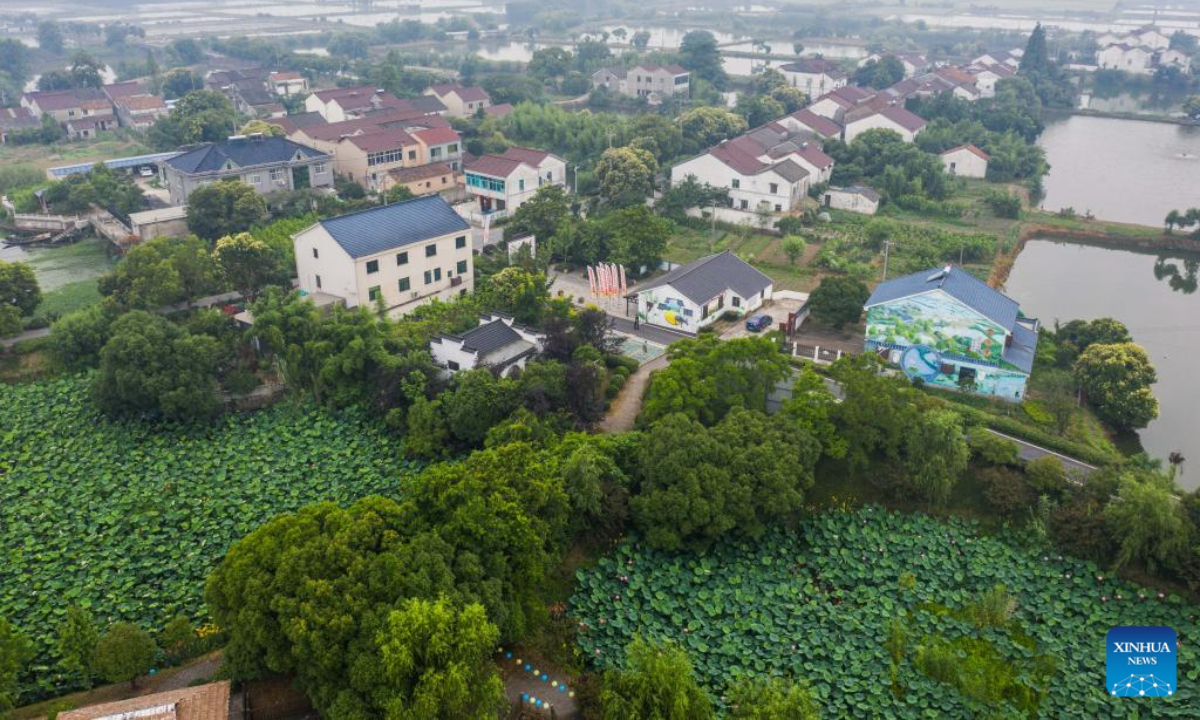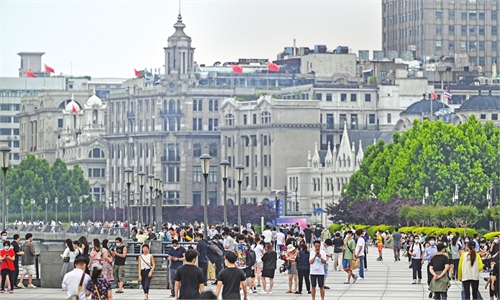
This photo taken on June 16, 2023 shows a view of Quanyi Village in Donglin Town, Huzhou, east China's Zhejiang Province. Photo:Xinhua
East China's Zhejiang Province has announced the lifting of all household registration or hukou requirements in the province, except for the capital city of Hangzhou, according to a recent action plan issued by the provincial government.
The plan aims to facilitate the relocation and integration of rural migrants into urban areas, making the process more accessible and seamless. This includes making the rules for settling down more flexible and improving the system for getting a residence permit, according to the plan. The plan will be effective from July 22 and will last for five years.
To allow the rural migrant population to settle down more easily, the province except for urban areas of Hangzhou will completely remove the hukou restrictions and ensure that both local and non-local rural migrants have unified standards for urban settlement. Migrant workers will be granted a hukou based on their habitual residence.
The city of Hangzhou will further improve the points-based household registration policy, ensuring that years of social security contributions and continuous residence account for the majority of the points. The annual quota for household registration will gradually be eliminated.
Furthermore, the province will actively encourage the issuance of residence permits in a digital format and make efforts to ensure that all eligible migrants have access to these permits.
The plan also highlights the need to further strengthen public service guarantees for rural migrant populations and to increase their adaptability to city life.
According to the plan, by 2027, the urbanization rate of permanent residents in Zhejiang will reach 76 percent, and the per capita income growth rate of rural migrants should be basically synchronized with those of urban residents.
By 2027, the channels for rural migrants to settle in urban areas will be further opened up. The basic public service needs of rural migrants will be effectively met, with more employment opportunities, stable living conditions, better education, convenient healthcare, stronger social security, and richer cultural experiences, according to the plan.
It is the first comprehensive plan in Zhejiang to promote the urbanization of rural migrants and is a leading provincial practice in improving the quality of urbanization for rural migrants at the national level.
Chinese authorities have been increasing their efforts to ease urban hukou restrictions for migrant workers and to allow rural residents to apply for urban household status so they can have access to the same public services that permanent urban residents have.
The National Development and Reform Commission in 2022 issued documents that call for the cancellation of hukou restrictions in all Chinese mainland cities with fewer than 3 million permanent residents.
Household restrictions will be relaxed in cities with 3-5 million permanent residents and the system will be improved and simplified in large cities with over 5 million permanent residents, according to the document.

